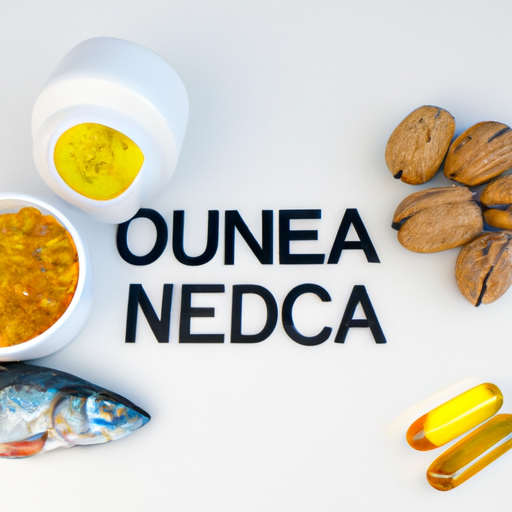
The Role of Omega-3 in Fitness Nutrition
Whether you're a seasoned athlete or just getting into a regular fitness routine, understanding the benefits of nutrition is crucial. Among the essential nutrients, omega-3 fatty acids play a pivotal role. This article explores the omega-3 benefits in fitness nutrition, helping you understand why these healthy fats are the unsung heroes of your diet.
Why Omega-3 Matters
Omega-3 fatty acids are essential fats that we must obtain through our diet. They're vital to health and wellness, impacting everything from heart health to brain function. For fitness enthusiasts, the omega-3 benefits extend into realms of muscle recovery, joint health, and even psychological well-being.
Boost Muscle Recovery with Omega-3
After intense workouts, your muscles need to repair and grow stronger. Omega-3 fatty acids can reduce inflammation, minimize muscle soreness, and enhance recovery time. That's not just a benefit; it's a fitness superpower! Think of omega-3 as your muscle's best friend, handing it a smoothie made of anti-inflammatory prowess.
Omega-3: Lubricating Your Joints Like a Pro
Ever felt like your joints are practically auditioning for the role of Tin Man in The Wizard of Oz? Omega-3 can help with that. These healthy fats support joint lubrication and flexibility — essential for keeping you agile and pain-free during workouts and throughout your daily life. Making omega-3 an essential part of your fitness nutrition plan keeps your joints oiled and ready for anything.
Mental Edge: Omega-3 and Cognitive Function
A strong body needs a strong mind, and omega-3 fatty acids are crucial for brain health. Improved mood, sharper focus, and increased motivation are just a few omega-3 benefits on the cognitive side. This means less procrastination and more action — perfect for those days when you're contemplating whether the couch or the gym deserves more love.
Omega-3 in Your Diet: How to Get Those Healthy Fats
Incorporating omega-3 into your diet doesn't mean resigning to a lifelong commitment to fish-flavored dishes. While fatty fish like salmon, mackerel, and sardines are excellent sources, there are plant-based options too!
- Flaxseeds: A great addition to smoothies and oatmeal.
- Chia Seeds: Perfect for puddings and thickening smoothies.
- Walnuts: Ideal for snacking or tossing into salads.
- Algal Oil: A vegan-friendly omega-3 supplement.
Supplements or Diet? Finding Your Omega-3 Groove
While diet is the best way to get your omega-3, supplements can be a practical alternative, especially if you're not a fan of fish or other omega-3 rich foods. When selecting supplements, look for ones that have high concentrations of EPA and DHA, the two main types of omega-3 fatty acids crucial for fitness nutrition.
Pro tip: Always consult with a healthcare professional before starting any new supplement regimen, because nobody wants to look like a human fish oil factory.
Integrate Omega-3 Into Your Fitness Routine
Incorporating omega-3 into your fitness nutrition plan is easier than you might think. It doesn't require a full kitchen conversion or breaking the bank. Here are a few simple tips:
- Add supplements: A daily dose of fish oil can make sure you're getting enough omega-3.
- Focus on whole foods: Aim to include omega-3-rich foods in two to three meals per week.
- Healthy swaps: Use flaxseed oil as your salad dressing, or grab some omega-3 enriched eggs from the supermarket.
By seamlessly integrating omega-3 into your diet, you can maximize the benefits of these healthy fats without undue stress!
Challenges and Considerations
Omega-3 fatty acids are generally well-tolerated but may pose challenges for some, especially those with seafood allergies or on a strict vegan diet. In such cases, focusing on plant-based sources like chia seeds and algal oils can help avoid allergic reactions while still reaping the omega-3 benefits. Also, be mindful of the quality and source of your supplements to prevent potential contaminants.
Ultimately, omega-3's versatility and effectiveness in fitness nutrition are valuable for individuals across different lifestyles and dietary preferences.
Conclusion: Omega-3 for Enhanced Fitness Nutrition
Understanding the role of omega-3 in fitness nutrition heralds an opportunity for better physical performance, quicker recovery, and stronger mental health. These healthy fats not only contribute to crucial body functions but also empower your fitness journey through recovery, mental clarity, and joint support.
As you refine your diet or fitness plan, remember the profound omega-3 benefits. Not all superheroes wear capes; some are hidden in the delicious richness of fish and the crunchy goodness of nuts.
